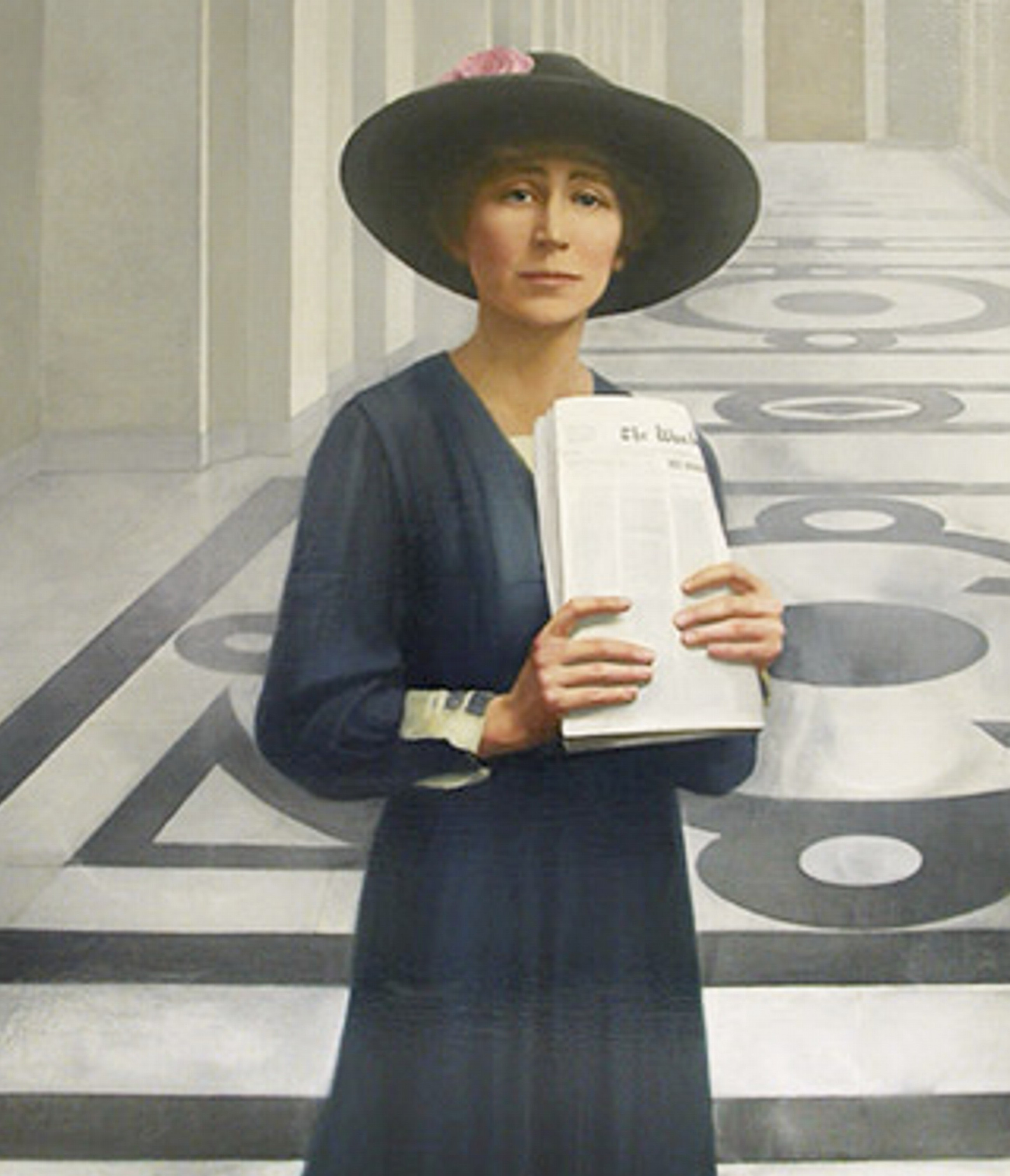In 1910 she returned to Montana to work for the emancipation of women. She declared that she was suspicious of governmental priorities set without women’s voice and argued that vote-denied women were being taxed without representation, echoing the famous credo from the American Revolution. Her work in the first women’s rights movement is closely linked to her pacifism and dedication to a peaceful foreign policy that would later define her Congressional contributions. She believed, as many women’s suffragists advocated during this period, that the corruption and dysfunction of the United States government was a result of a lack of feminine participation. As she states very clearly at a disarmament conference during the interwar years “The peace problem is a woman’s problem”.
On November 7, 1916 she was elected to the House of Representatives as a Republican from Montana, becoming the first female member of Congress. She vigorously supported women’s suffrage, child protection laws and prohibition. Rankin turned her attention to work for peace also. Rankin used her fame and notoriety in this “famous first” position to work for peace and women’s rights and against child labor, and to write a weekly newspaper column. Jeannette Rankin said “I’m No Lady; I’m a Member of Congress”. Days after taking office, Jeannette Rankin made history in yet another way by voting against US entry into World War I. She violated protocol by speaking during the roll call before casting her vote, announcing “I want to stand by my country, but I cannot vote for war”. Many people in media and public life attempted to discredit her with charges of Communist intentions.
After the war ended, Rankin continued to work for peace through the Women’s International League for Peace and Freedom, and also began work for the National Consumers’ League. She worked, at the same time, on the staff of the American Civil Liberties Union. Jeannette Rankin passed away at Carmel, California, on May 18, 1973, after leaving great messages to the women all over the world!
Today, in the world history, Rankin is the most inspiring role models for women empowerment. Rankin remained as active in politics as she could right up until her death. She continued to produce writing promoting women’s rights, peace, child welfare, and civil rights from her home which remained relevant in the civil rights movement of the era. Her career has left behind a legacy of controversy with some viewing her as impossibly idealistic, and others identifying her as an inspiration to be pursued. Her contributions to various feminist movements cannot be ignored, and continue to be relevant today.
In the governing body meeting on November 07, 2012, the Centre for Media & Public Affairs (CMPA) instituted an Award in the name of Jeannette Pickering Rankin which will be presented during January 2013 to professionally accomplished social workers who selflessly campaign for the rights of women.

